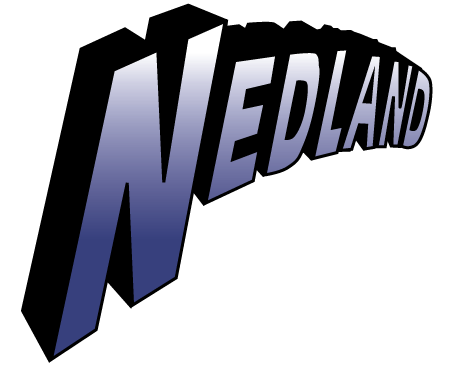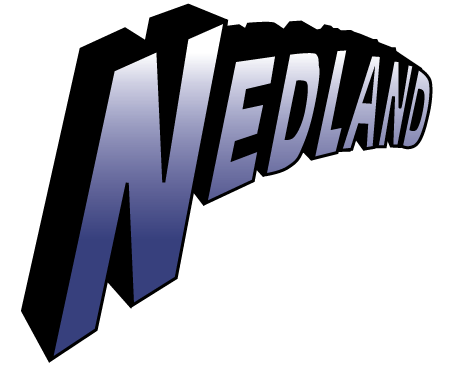The roll-off business: It could be a gold mine—or a money pit. It all comes down to market opportunity, entrepreneurial spirit, and investing in the right assets—at the right time.
Want to know how to start a roll-off dumpster rental business?
Your success hinges on your ability to plan thoughtfully before you make the plunge. That means:
- Conducting market research to ensure the opportunity is there
- Identifying your niche in the marketplace
- Calculating your roll-off operating expenses
- Exploring safety and compliance regulations and costs
- Estimating your start-up capital expenses
- Marketing your roll-off business
- Fostering critical business relationships
- Protecting yourself from customers that don’t hold up their end of the bargain
- Expanding your operation with complementary services
Ready to dig in? Let’s go.
Researching your local waste management market
A roll-off business is an inexpensive way to gain entry into the waste management industry—provided there’s a place for you to grow.
Is your area underserved? It might be.
We often hear from small construction and landscaping contractors that operate in areas serviced by a single, major hauler. They’re exploring what it might take to claim a piece of the roll-off pie.
If that’s the scenario in your area, there’s a niche market for you:
- Big haulers are after the big contractors—they want 100 pulls a month
- Small businesses want to work with other small businesses
- By operating with smaller equipment, you can get into cul-de-sacs and drop boxes in residential areas without tearing up property
So, do a little gumshoe detective work to see where things stand.
To start, call every rolloff dumpster business in the yellow pages:
- What services do they offer?
- What are their rates?
- What dumpster sizes do they have available?

You’ll quickly discover if there’s room for you—and knowing what your future competitors charge will help you determine if you can carve out enough margin to run profitably.
Next, scan the Interwebs for local roll-off business reviews.
Do customers seem genuinely happy with the service they’re receiving? If there’s a pool of unhappy customers out there, you might be able to dazzle them with outstanding service.
In fact, when going up against the big guys, this is where small local businesses often shine—friendly, responsive, guy or gal next-door service.
Finally, we recommend that you complete a SWOT analysis. That means, identifying the strengths and weaknesses of your prospective business—and both the opportunities for and threats to its success. This exercise can often help illuminate whether or not launching a new business is wise.
Identifying your market niche
As you’re conducting your research, be sure to keep your eyes open for opportunities to carve out a unique niche in the industry.
Could you be the go-to rolloff business for bustling residential remodeling businesses? Could you serve difficult-to-access urban areas with smaller, more maneuverable roll-off dumpsters?
When choosing a niche to specialize in, consider sites where larger trailers can’t easily fit without running the risk of damaging property.
For instance, audiences like these could make for profitable potential customers:
- Real estate agents who need to prep foreclosed properties for market
- Landlords who want to clear our tenant debris from their rental properties
- Roofers, remodelers, small to mid-sized construction contractors, and even do-it-yourselfers who need to dispose of their construction and demolition debris
- Landscapers who want to clear yard waste and landscaping material from job sites
Estimate your roll-off business operating expenses
Okay, so you know what the competitors are charging. Now, you need to determine your potential operating expenses.
Here’s what you’ll need to estimate:
- Truck license fees
- DOT number fees
- Liability insurance costs
- City, municipality, and DNR permit costs
- Truck and roll-off equipment maintenance costs
- Fuel required to operate
- Tipping fees for construction and demolition debris (C&D), as well as for regular trash—they’re often priced differently
- Staffing costs, should you plan to hire a driver or someone to answer your phone at the outset
- Marketing costs that could include a yellow pages listing, a simple, mobile-friendly website, and digital advertising
Explore your future safety and compliance requirements and costs
When you inquire about permits, the cities and municipalities you speak with will spin you up on their environmental regulations. And, through this process, you’ll learn a lot about what you can put where. For example, some landfills won’t take your shingles and drywall, and incinerators will be really unhappy if you slip metals into your load.

As for safety, check out your state regulations for guidance. OSHA is available, too, but online state and local resources are typically easier to navigate. Find out what they require.
It’s important that you explore your compliance requirements, costs, and fines early. They’ll help you determine if it’s worth going into business.
Estimate your startup capital costs—your roll-off equipment
Can you afford to purchase the necessary roll-off equipment you need to start your business and deliver competitive rates without putting yourself out on the street?
This is the next critical question to answer.
Starting out with a used truck that’s already equipped with a roll-off hoist is most likely your best bet. And, they’re out there. In fact, when our customers upgrade their equipment, they post their used vehicles with us.
You’ll also need a roll-off trailer and dumpsters.

That said, keep in mind that cheap, starter roll-off packages are out there, and they’re targeting folks just like you. Often poorly constructed and leveraging rails that aren’t industry-standard, they keep you locked into their low-quality dumpsters. Beware.
Another thing to consider: If you go with a smaller system, like our 16,000 lb EZrolloff trailer, not only will you be able to haul dumpsters with a ¾ ton pickup truck, you won’t be required to acquire a CDL either. And, the smaller containers you’ll haul will take up less space in driveways and be far less likely to damage property than the big boxes national haulers deliver—making for happier customers.
As you’re calculating these equipment costs, be sure to roll replacement costs into your big-picture calculus. Some equipment simply won’t offer the same longevity as equipment that’s solidly constructed, costing you more money in the long run. So, factor that in if you go the cheaper route to get your business off the ground. (We hear from lots of customers who would advise against this, though, and we agree.)
Finally, as you’re researching roll-off equipment manufacturers, be sure you work with one that can support rapid scaling. If your business takes off and you don’t have enough containers to support demand, you’ll have to turn business away.
So, can you afford to make the leap?
Before you answer that question, keep in mind that new business owners typically don’t get paid in those first few years. Profits are instead invested in the business to drive growth. Can you sustain that?
Market your rolloff business
Visibility is critical to your business growth.
So, create a free Google My Business listing and launch a simple, affordable website. After all, if you don’t have a digital presence in this day and age, you may as well not exist.

You’ll also want to explore the branded decals that can help generate new business. While this is a cheap, simple way to market your roll-off rental business, it’s an opportunity that often gets missed.
Okay, so you have a happy customer. What next?
Ask if they’d be willing to provide a testimonial you can use on your website and marketing materials, and encourage them to post a review on your Google My Business listing. This social proof will give other customers the confidence to know you’re the right choice.
Foster critical business relationships
Business is all about building relationships—especially at the local level.
So, begin reaching out to those niche audiences you’ve identified, and let them know you’d like to be their vendor. These are small businesses, and they’ll be loyal to local people—just give them a fair deal.
Keep in mind that happy, recurring customers can often be an important source of referrals, so be sure you consistently deliver friendly, responsive service.
An important point: Don’t complicate your business with deep contracts filled with confusing legalese. It frustrates small businesses, and it’s what they often encounter with the national haulers—huge, confusing contracts that feel as though they’re signing their lives away.
Lastly, don’t overlook your partnership with landfill operators. A great partnership is guaranteed to help your bottom line. Once you’ve built a solid rapport, you may be able to negotiate per-ton rates, which are savings you can pass along to your customers—making you an even more competitive option.
Protect yourself from customers who leave you holding the bill
Unfortunately, you’ll run into a bad apple from time to time. That’s why we highly recommend that you get a valid credit card up-front, and be sure to charge an extra fee to cover your credit card processing costs (~5%). That way, you’ve protected your business.
Because, once the waste is on your truck, it’s yours.
A customer once called us in frustration to say that, after non-payment, he hauled the waste back to his customer’s lot and dumped it in their yard. Well, the hauler got ticketed, sued, and was on the receiving end of negative press coverage—and then he was court-ordered to return to the lot, clean up the waste, and pay out of his own pocket to dump it. Talk about a raw deal.
The customer got free service because the hauler didn’t have a valid credit card. Don’t let this be you.
Expanding your business with complimentary services
Okay, so you’re on your way. Now, consider how you might offer complimentary, diversified services. Not only can they help you carve out a competitive advantage, but they can also help you safeguard your business from an unforeseen economic downturn.
The best way to identify these opportunities? Listen to your customers. Understand their needs.
For example, have you considered delivering portable restrooms to your construction clients? What about offering hazardous waste disposal as a way to open up a new stream of recurring business?
One of our roll-off customers ordered a custom dump body, auger, and plow. His snow removal services proved to be a great way to supplement revenue in the slow winter months.
Good luck
There’s opportunity out there for many. Just remember—if you choose to make the leap, the greatest value you can provide your customers is excellent service.
You don’t need to get too carried away competing with your competitors on price. Simply research the industry averages for pricing in your region and set your prices low enough to make a profit after covering your costs.
Then, deliver the friendly, responsive, reliable service that keeps them coming back time and time again. It’s the surest way to grow.














